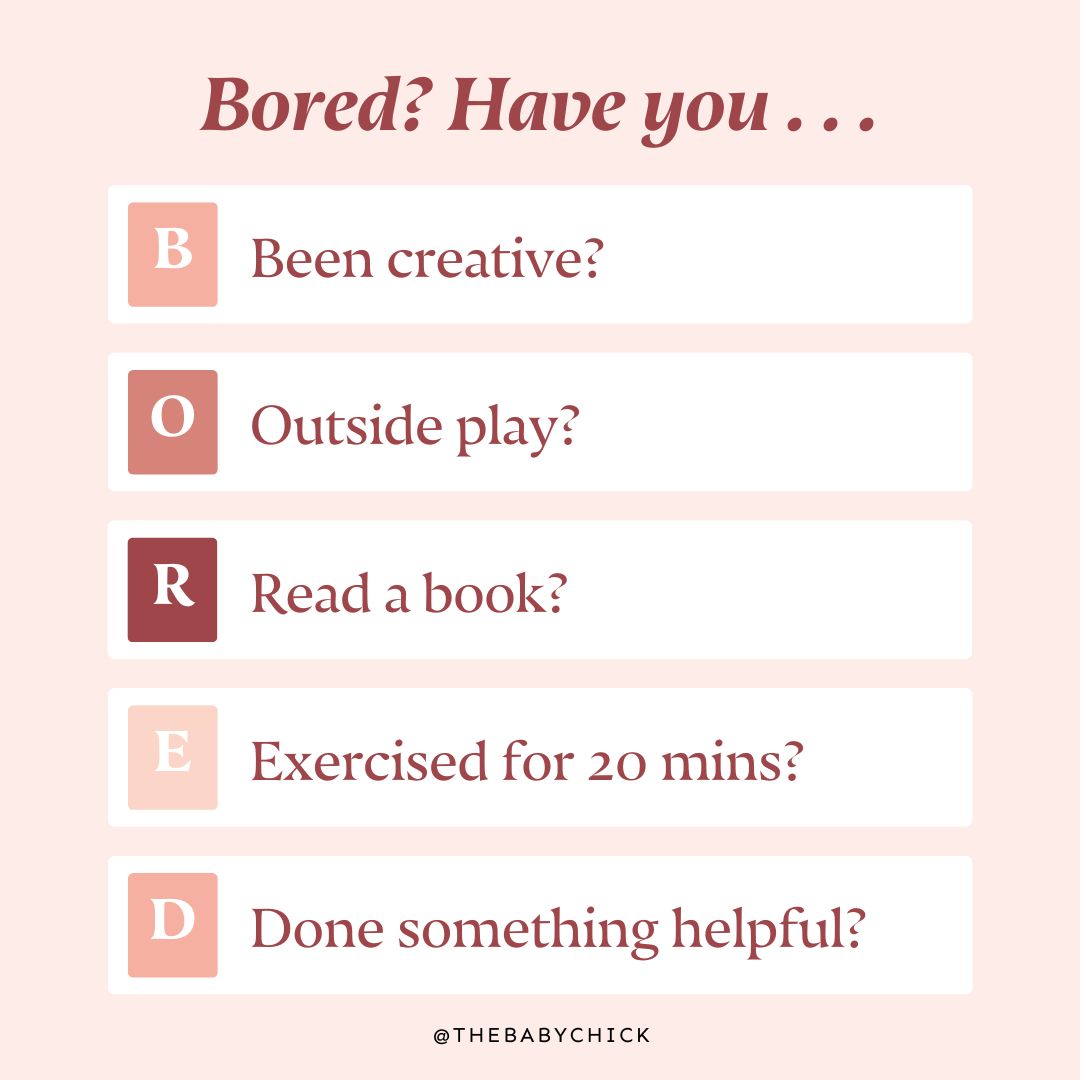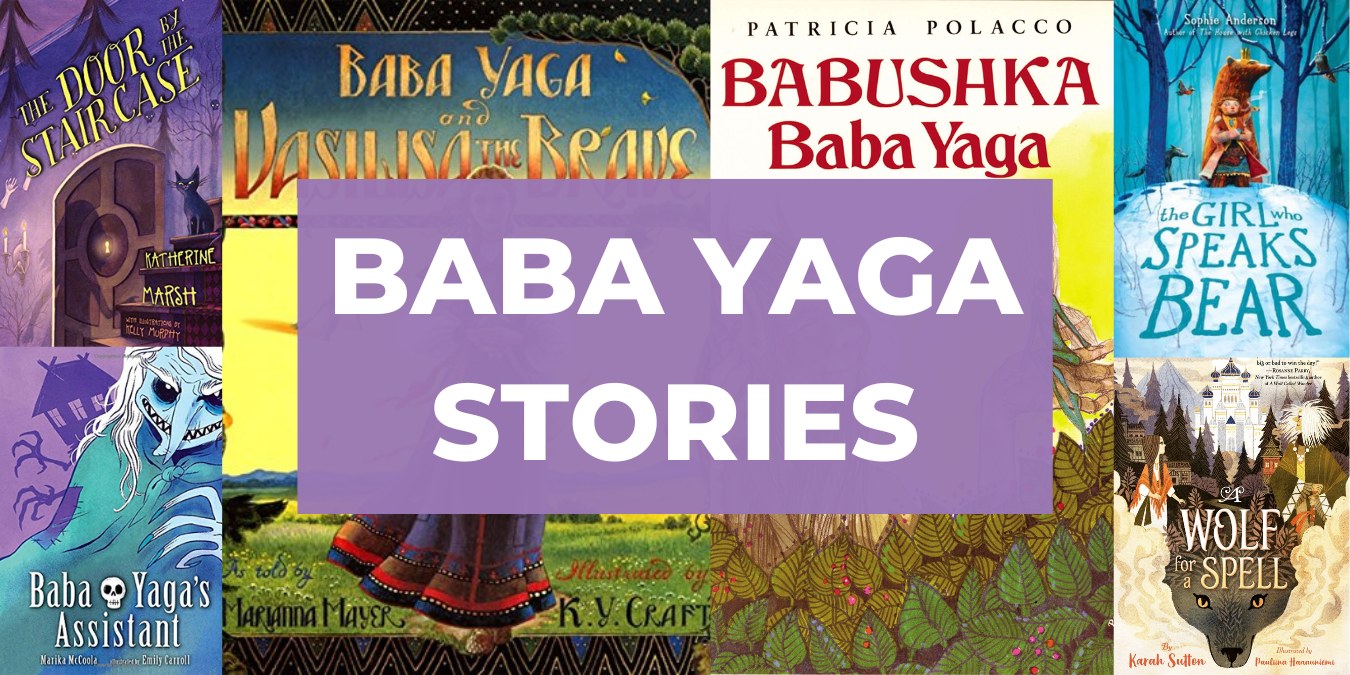If you’ve been a parent for a few years, more than likely, you’ve heard the dreaded words, “Mommy, I’m bored.” And for many of us, that phrase isn’t often met with the most positive responses. First, we roll our eyes in frustration because our kids have nine billion toys to play with; how do they suffer from boredom? Second, do they know how good they have it? Free time to do whatever they want, and my kid says they’re bored? That sounds dreamy. (As we transfer the clothes from the washer to the dryer, stir the dinner cooking on the stove and make a mental note to pay bills later after vacuuming the filthy carpet and scrubbing toilets.)
But maybe it’s time we reframe how we respond when our kids say they are bored—especially if we want them to learn how to fill their free time rather than expect us to entertain them. Maybe it’s time we see our kids’ boredom as a gift—and make sure they know it’s a gift, too.
Why is Boredom Essential for Kids to Experience?
According to research professor Richard Rende, Ph.D., when kids say, “I’m bored,” they say, “I’m not engaged.” And, he says, boredom is a good thing because it means your child’s brain is “craving something, and I need to muck around until I find something that satisfies me.”1
And that mucking around? It’s actually good for them.
The experience of being unengaged (or “bored”) is when kids can blossom and get lost in unfettered imaginative play. It’s when kids get to run around and not have rules, restrictions, or a calendar dictating their every move. Or when they can climb trees, play house, school, hide-and-seek, or gather many kids for a makeshift kickball game in the street. It’s when they can draw, paint, or write stories, find their inner passions, and dream of what they might want to be when they grow up.
We live in a “go, go, go, go,” overly scheduled society that tends to see downtime as wasted time and time we should use to be more productive. But we can use free time to find an activity that fills our cup, which is one of the most productive things a person — adult or child — can do. Viewing boredom as an opportunity to do something can benefit everyone. Children can use their time to try new activities, develop frustration tolerance, learn to take the initiative and entertain themselves, develop planning strategies and problem-solving skills, learn perseverance, and increase their confidence.2
How Should Parents Respond When Their Kids Say, ‘I’m Bored’?
First and foremost, parents should ensure their children’s basic needs are met. An article published by Kansas State University explains that sometimes kids come to us saying they are bored but need our attention. If you can give your child a few minutes of undivided attention, especially if you’ve been busy and haven’t connected with them as much as they need lately, try that first.3
But if your child’s needs are being met, and it is truly a case of classic boredom, you should not swoop in as the 24-hour entertainment source. That is not your job. Suppose we always immediately solve our kids’ boredom struggles. In that case, we are doing more harm than good because we should teach them how to figure their boredom out independently, using their imagination and problem-solving skills.3
Knowing that it’s imperative to foster a sense of independence in our kids and encourage their ability to fill their own free time, experts in the parenting field offer an array of suggestions for how to respond when our kids say they’re bored. For example, “OK, got it. So, enjoy your free time and figure out something to do that isn’t boring to you.” 1
However, clinical expert Stephanie A. Lee, PsyD, says parents may need to be a bit more hands-on in helping kids learn to handle their boredom. Because boredom fosters creativity, self-esteem, and original thinking, she says, it’s essential to help kids learn to manage their boredom to develop independence and control their happiness and well-being.2
How Can Parents Help Kids Learn to Handle Their Boredom?

Parents must be proactive when their kid says they’re bored. That means anticipating our kids’ inevitable boredom and brainstorming with them a list of activities they can do next time the opportunity arises.2
Experts suggest making a list that comprises a mix of your ideas and some of your child’s. Mix up the length of ideas with some long-term and some quick ones. You can use items you already have around the house and consider your child’s interests or things they might like to learn more about. The idea is to point to the list next time they claim they’re bored and say, “That’s great! I can’t wait to see what you’ll do with your time.”2
Your child can make their list on a marker board or write ideas on paper. They can cut them up and put them in a “boredom buster” jar accessible the next time they are looking for something to do.
Another option is to assign chores to help kids cope with boredom. They can brainstorm fun ideas they would like to do once they clean their rooms, fold the laundry, or put the dishes away. They fill their time with something worthwhile, contribute to the household, and still get to choose an activity in the end. Everyone wins!
Also, it’s essential that as we encourage our children to manage their own free time that they actually have it. A child with little time to play, read, or run around will struggle with how to pass those hours and minutes when the next opportunity arises. A child frequently faced with “boredom” may learn how great boredom can be and may quickly transition into a satisfying activity.1
Boredom Buster Ideas for Younger Children
Here are some ideas to help bust your little ones’ boredom:
- Create an obstacle course with items from the house and garage.
- Gather art supplies like scrap paper, pipe cleaners, stickers, and glue for an art project.
- Play dress up with their parents’ old clothes.
- Go on a nature scavenger hunt.
- Make their own stationery and write letters to their grandparents or relatives.
- Make a reading fort.
- Make puppets with craft supplies, popsicle sticks, and a puppet show using old shoeboxes as a “stage.”
- Play classic outdoor games like kickball or hide-and-seek.
- Learn about a new animal before a trip to the zoo.
Boredom Buster Ideas for Older Kids
Got older kids? Here are some ideas for them to bust their boredom:
- Plant a garden.
- Gather a bunch of DIY leftover materials and “invent” something.
- Learn to cook new food.
- Take apart broken electronics to see how they work.
- Go for a walk and listen to a podcast or audiobook.
- Start reading a new book series.
- Work on athletic skills (dribbling, sprinting, gymnastics).
- Create their own board game.
- Gather old magazines and scrapbook or make a collage.
Even if your kid says they’re bored, remember boredom is a gift. Kids need it and deserve it. We need to change the narrative and attach a positive connotation to this word so they see it as an opportunity, not something negative. And we need to teach our kids that they can figure out what to do next time they are bored — not us.

 PARENTING TIPS
PARENTING TIPS PREGNANCY
PREGNANCY BABY CARE
BABY CARE TODDLERS
TODDLERS TEENS
TEENS HEALTH CARE
HEALTH CARE ACTIVITIES & CRAFTS
ACTIVITIES & CRAFTS


